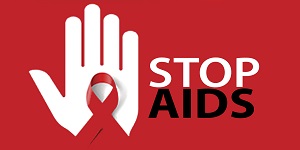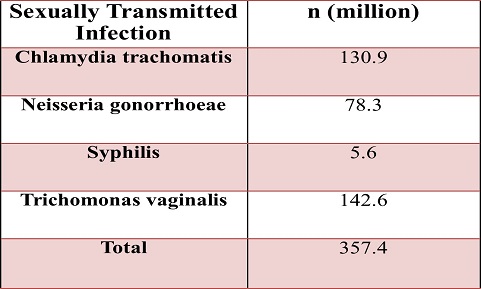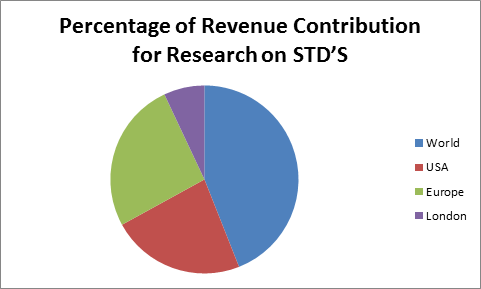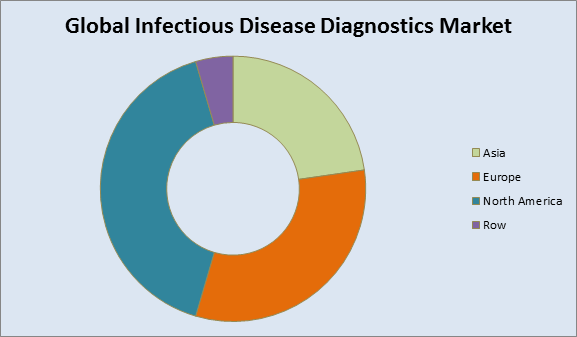
HIV 2018

Theme: Enhancing competency in HIV Prevention and Care
It is our great pleasure to invite you to Paris to attend the International Conference on HIV/AIDS, STDs & STIs(HIV 2018) organized by the Meetings International which is going to be held in Paris, France during june 18-20, 2018.With members from around the world focused on learning about HIV/AIDS & STDs/STIs, this is your single best opportunity to reach the largest assemblage of participants from the hospitals, Universities, community, etc. The field of HIV/AIDS and STDs (Sexually Transmitted Diseases) is developing quickly and its improvement is making tremendous effects on therapeutic sciences and pharmaceuticals. HIV 2018 will conduct demonstrations, distribute information, meet with current and potential researchers and receive name recognition at this 3-day event. World-renowned doctors, researchers, scientists, speakers, the most recent techniques, tactics, and the newest updates in respective field are hallmarks of this HIV 2018 conference.
Meetings International (Meetings Int.) is a global leader in producing high quality conferences, meetings, workshops and symposia in all major fields of science, technology and medicine. Since its inception, Meetings Int. has been associated with national and international associations, corporations and high level individuals, dedicated to host world class conferences and events. Meetings Int. supports broad scope research and peer review at a broad range of specialists around the world. The key strategic objective of Meetings Int. is to communicate science and medical research between academia, and industry. Through inspiring sessions and tons of networking, you will learn to be even more audacious and bold than you are now and free to grow your mind, grow your business, and grow your bottom-line. We can relieve you of the time and resource draining elements of the events that you plan to hold. From planning to coordinating, start to finish; we will be there to ensure you take the accolades for yet another brilliant program. We organize conferences world-wide. All major conferences of Meetings International are accredited with Continuing Professional Development (CPD), Continuing Education (CE), and Continuing Medical Education (CME) Credits.
This HIV 2018 Conference will offer an exciting scientific program, composed of state-of-the-art plenary lectures, including Face-to-Face Workshops and abstract-driven sessions presenting the latest research in the field of HIV medicine. Furthermore, HIV 2018 will also provide an opportunity for younger investigators to actively participate and present their research.
HIV Conference | STD Conference | AIDS Conference | STD-AIDS Conference | STD Conference Europe | HIV Conference 2018 | HIV Conference France | HIV Conference Paris
Session-1
HIV/AIDS and Retroviral Diseases
36.7 million people were living with HIV in 2016, it was 33.2 million in 2010, the result of continuing new infections, people living longer with HIV, and general population growth. Global prevalence (the percent of people ages 15-49 who are infected) has leveled since 2001 and was 0.8% in 2016.Despite these challenges, new global efforts have been mounted to address the epidemic and there has been significant progress. The number of people newly infected with HIV, especially children, and the number of AIDS-related deaths have declined over the years, and the number of people with HIV receiving treatment increased to nearly 21 million as of June 2017. However, recent data shows that the pace of decline in new infections is too slow to reach global targets.
This HIV 2018 Conference will also include the topic of Retroviruses diseases. Retroviruses induce diseases that do not fit easily into any of the major categories and different tissues can influence the type of disease that develops the first retrovirus associated with disease was equine infectious anemia virus (EIAV). BFU-E and CFU-E contained by Anemic cats is very less, and FeLV infection suppresses the generation of these precursors in vitro. Endogenous retroviral proteins are acting as auto antigen in liver disease patients. While murine retroviruses are inactivated by human complement and are not capable of causing human disease.
Related Conference-:
5th Infectious Conferences March1-2, 2018 Berlin, Germany,10th Virology Conferences July 2-4, 2018 Vienna, Austria. 2nd STDs, STIs & HIV/AIDS Conferences, Montreal, Canada, May 18-19, 2018; 22nd International AIDS Conference, July 23-27, 2018 Amsterdam, Netherlands; 20th International Conference on HIV and AIDS, May 14 - 15, 2018 London, United Kingdom; 12th Annual ACTHIV, April 5 - 7, 2018 Chicago, Illinois; 27th Annual Canadian Conference on HIV/AIDS Research, April 26-29, 2018 Vancouver, British Columbia; 9th International Francophone Conference on HIV/Hepatitis, April 4-7, 2018, Paris, France ; 28th European Congress of Clinical Microbiology and Infectious Diseases, April 21 - 24 2018, Madrid, Spain;
Related Societies-:
American Sexual Health Association, USA; National Coalition of STD Directors, USA; Johns Hopkins Center for STD Research, USA; Infectious Diseases Society of America; European AIDS Clinical Society; European AIDS Treatment Group: EATG; COHERE (Collaboration of Observational HIV Epidemiological Research in Europe); AIDS ACTION EUROPE, NASTAD, Europe; Australian Federation of AIDS Organisations, National AIDS Control Organisation, India HIV/AIDS Alliance, AIDS SOCIETY OF INDIA, IASSTD & AIDS; WHO: Sexually transmitted infections; British Association for Sexual Health and HIV; WHO HIV/AIDS Programme;
HIV Conference | STD Conference | AIDS Conference | STD-AIDS Conference | STD Conference Europe | HIV Conference 2018 | HIV Conference France | HIV Conference Paris
Session-2
HIV Related Infections, Co-Infections and Cancers
There are a number of infections and cancers that can develop in people who are living with HIV. There are infections that can be life threatening.These are also known as opportunistic infections. In HIV 2018 Conference we will try to discuss about ongoing research of this topic. The more common life-threatening infections include a lung infection called Pneumocystis pneumonia (PCP), an eye infection caused by cytomegalovirus (CMV), a brain infection called toxoplasmosis, and a generalized infection called Mycobacterium avium complex (MAC). Cancers that are more common include Hodgkin’s lymphoma, lung cancer, skin cancer, anal cancer, cervical and vaginal cancer in women, and testicular and prostate cancer in men. These cancers can often be successfully treated if they occur in people with HIV who maintain healthy immune systems with HIV treatment.
Related Conference-:
5th Infectious Conferences March1-2, 2018 Berlin, Germany,10th Virology Conferences July 2-4, 2018 Vienna, Austria. 2nd STDs, STIs & HIV/AIDS Conferences, Montreal, Canada, May 18-19, 2018; 22nd International AIDS Conference, July 23-27, 2018 Amsterdam, Netherlands; 20th International Conference on HIV and AIDS, May 14 - 15, 2018 London, United Kingdom; 12th Annual ACTHIV, April 5 - 7, 2018 Chicago, Illinois; 27th Annual Canadian Conference on HIV/AIDS Research, April 26-29, 2018 Vancouver, British Columbia; 9th International Francophone Conference on HIV/Hepatitis, April 4-7, 2018, Paris, France ; 28th European Congress of Clinical Microbiology and Infectious Diseases, April 21 - 24 2018, Madrid, Spain;
Related Societies-:
American Sexual Health Association, USA; National Coalition of STD Directors, USA; Johns Hopkins Center for STD Research, USA; Infectious Diseases Society of America; European AIDS Clinical Society; European AIDS Treatment Group: EATG; COHERE (Collaboration of Observational HIV Epidemiological Research in Europe); AIDS ACTION EUROPE, NASTAD, Europe; Australian Federation of AIDS Organisations, National AIDS Control Organisation, India HIV/AIDS Alliance, AIDS SOCIETY OF INDIA, IASSTD & AIDS; WHO: Sexually transmitted infections; British Association for Sexual Health and HIV; WHO HIV/AIDS Programme;
HIV Conference | STD Conference | AIDS Conference | STD-AIDS Conference | STD Conference Europe | HIV Conference 2018 | HIV Conference France | HIV Conference Paris
Session-3
HIV\AIDS stigma, Discrimination and Lived experience with HIV
People living with HIV and AIDS have to face negative attitudes and abuse, these kind of activity refers to HIV-related stigma and discrimination. Stigma and discrimination continue to undermine prevention, treatment and care of people living with the HIV and AIDS. It hinders those with the virus from telling their partners about their status. It threatens their access to health care. It increases their vulnerability to physical violence. And HIV-related stigma affects people’s ability to earn a living, making it even more difficult for them to lift themselves out of poverty. The consequences of stigma and discrimination are wide-ranging. Some people are shunned by family, peers and the wider community, while others face poor treatment in healthcare and education settings, erosion of their human rights, and psychological damage. These all limit access to HIV testing, treatment and other HIV services.Knowing that you are HIV-positive can be one of the worst experiences you go through in life. But, HIV will not restrict you from living a long, happy and healthy life. With the right treatment and support, it is possible to live as long as the average person. In our society, there are a lot of misconceptions about what it means to be living with HIV. Ultimately, how you cope with your diagnosis and how you move forward will matter as everyone’s lives are different. STD-AIDS Conference will gather community and society which are fighting against discrimination.
Related Conference-:
5th Infectious Conferences March1-2, 2018 Berlin, Germany,10th Virology Conferences July 2-4, 2018 Vienna, Austria. 2nd STDs, STIs & HIV/AIDS Conferences, Montreal, Canada, May 18-19, 2018; 22nd International AIDS Conference, July 23-27, 2018 Amsterdam, Netherlands; 20th International Conference on HIV and AIDS, May 14 - 15, 2018 London, United Kingdom; 12th Annual ACTHIV, April 5 - 7, 2018 Chicago, Illinois; 27th Annual Canadian Conference on HIV/AIDS Research, April 26-29, 2018 Vancouver, British Columbia; 9th International Francophone Conference on HIV/Hepatitis, April 4-7, 2018, Paris, France ; 28th European Congress of Clinical Microbiology and Infectious Diseases, April 21 - 24 2018, Madrid, Spain;
Related Societies-:
American Sexual Health Association, USA; National Coalition of STD Directors, USA; Johns Hopkins Center for STD Research, USA; Infectious Diseases Society of America; European AIDS Clinical Society; European AIDS Treatment Group: EATG; COHERE (Collaboration of Observational HIV Epidemiological Research in Europe); AIDS ACTION EUROPE, NASTAD, Europe; Australian Federation of AIDS Organisations, National AIDS Control Organisation, India HIV/AIDS Alliance, AIDS SOCIETY OF INDIA, IASSTD & AIDS; WHO: Sexually transmitted infections; British Association for Sexual Health and HIV; WHO HIV/AIDS Programme;
HIV Conference | STD Conference | AIDS Conference | STD-AIDS Conference | STD Conference Europe | HIV Conference 2018 | HIV Conference France | HIV Conference Paris
Session-4
HIV relation with Cardiovascular diseases and Aging
Human immunodeficiency virus-infected individuals are at increased risk for CVD. Timely initiation of ART with consequent viral suppression is likely to reduce CVD events and to offset potential side effects from ART-induced metabolic changes. Reduction in smoking in HIV-infected individuals is a public health priority. Cardiovascular disease (CVD) includes a group of problems related to the heart (cardio) or to blood vessels (vascular.) CVD coronary heart disease (heart attacks), angina (chest pain from lack of blood to the heart ), cerebrovascular disease (problems with blood vessels in the brain, including stroke), peripheral artery disease (blocked blood vessels in the legs), rheumatic heart disease (a complication of a throat infection), congenital heart disease (due to a birth defect) and heart failure.
The development of highly active anti-retroviral therapy (HAART) for HIV infection in the 1990s is one of modern medicine’s most dramatic success stories. Once effectively a death sentence, HIV infection can now be considered a serious, but largely manageable, chronic condition. Today, a person who begins HAART can reasonably expect to live another 30 to 50 years and often well into older age. However, many of the drugs used to treat HIV have not been around for very long. Whereas short-term side-effects are well researched and documented, longer-term side-effects are less well understood. Your healthcare professional will keep an eye on how well your body is working, so any problems can be identified and treated early, this is a part of your routine health monitoring.
Related Conference-:
5th Infectious Conferences March1-2, 2018 Berlin, Germany,10th Virology Conferences July 2-4, 2018 Vienna, Austria. 2nd STDs, STIs & HIV/AIDS Conferences, Montreal, Canada, May 18-19, 2018; 22nd International AIDS Conference, July 23-27, 2018 Amsterdam, Netherlands; 20th International Conference on HIV and AIDS, May 14 - 15, 2018 London, United Kingdom; 12th Annual ACTHIV, April 5 - 7, 2018 Chicago, Illinois; 27th Annual Canadian Conference on HIV/AIDS Research, April 26-29, 2018 Vancouver, British Columbia; 9th International Francophone Conference on HIV/Hepatitis, April 4-7, 2018, Paris, France ; 28th European Congress of Clinical Microbiology and Infectious Diseases, April 21 - 24 2018, Madrid, Spain;
Related Societies-:
American Sexual Health Association, USA; National Coalition of STD Directors, USA; Johns Hopkins Center for STD Research, USA; Infectious Diseases Society of America; European AIDS Clinical Society; European AIDS Treatment Group: EATG; COHERE (Collaboration of Observational HIV Epidemiological Research in Europe); AIDS ACTION EUROPE, NASTAD, Europe; Australian Federation of AIDS Organisations, National AIDS Control Organisation, India HIV/AIDS Alliance, AIDS SOCIETY OF INDIA, IASSTD & AIDS; WHO: Sexually transmitted infections; British Association for Sexual Health and HIV; WHO HIV/AIDS Programme;
HIV Conference | STD Conference | AIDS Conference | STD-AIDS Conference | STD Conference Europe | HIV Conference 2018 | HIV Conference France | HIV Conference Paris
Session-5
HIV Diagnosis and Therapy
HIV contamination represents a range of sickness that can start with a short intense retroviral disorder that normally advances to a multiyear chronic and clinically latent ailment. Without treatment, this sickness inevitably advances to a symptomatic, life-threatening immunodeficiency illness known as AIDS. In untreated patients, the time between HIV infection and the improvement of AIDS differs, going from a couple of months to numerous years with an expected middle time of roughly 11 years (123). HIV replication is available amid all phases of the contamination and progressively depletes CD4 lymphocytes, which are critical for maintenance of effective immune function. When the CD4 cell count falls below 200 cells/μL, patients are at high risk for life-threatening AIDS-defining opportunistic infections (e.g., Pneumocystis pneumonia, Toxoplasma gondii encephalitis, disseminated Mycobacterium avium complex disease, tuberculosis, and bacterial pneumonia). In the absence of treatment, virtually all HIV-infected persons will die of AIDS. Your doctor can diagnose HIV by testing blood for the presence of antibodies (disease-fighting proteins) to HIV. After infection, HIV antibodies may take as long as six months to be produced in quantities large enough to show up in standard blood tests. For that reason, make sure to talk to your health-care provider about follow-up testing.
Related Conference-:
5th Infectious Conferences March1-2, 2018 Berlin, Germany,10th Virology Conferences July 2-4, 2018 Vienna, Austria. 2nd STDs, STIs & HIV/AIDS Conferences, Montreal, Canada, May 18-19, 2018; 22nd International AIDS Conference, July 23-27, 2018 Amsterdam, Netherlands; 20th International Conference on HIV and AIDS, May 14 - 15, 2018 London, United Kingdom; 12th Annual ACTHIV, April 5 - 7, 2018 Chicago, Illinois; 27th Annual Canadian Conference on HIV/AIDS Research, April 26-29, 2018 Vancouver, British Columbia; 9th International Francophone Conference on HIV/Hepatitis, April 4-7, 2018, Paris, France ; 28th European Congress of Clinical Microbiology and Infectious Diseases, April 21 - 24 2018, Madrid, Spain;
Related Societies-:
American Sexual Health Association, USA; National Coalition of STD Directors, USA; Johns Hopkins Center for STD Research, USA; Infectious Diseases Society of America; European AIDS Clinical Society; European AIDS Treatment Group: EATG; COHERE (Collaboration of Observational HIV Epidemiological Research in Europe); AIDS ACTION EUROPE, NASTAD, Europe; Australian Federation of AIDS Organisations, National AIDS Control Organisation, India HIV/AIDS Alliance, AIDS SOCIETY OF INDIA, IASSTD & AIDS; WHO: Sexually transmitted infections; British Association for Sexual Health and HIV; WHO HIV/AIDS Programme;
HIV Conference | STD Conference | AIDS Conference | STD-AIDS Conference | STD Conference Europe | HIV Conference 2018 | HIV Conference France | HIV Conference Paris
Session-6
HIV Drug Discovery, Research &Vaccines
After the virus was discovered 25 years ago the development of drugs for HIV infection began. Since then, progress has been substantial, but numerous uncertainties persist about the best way to manage this disease. Here we review the current treatment options, consider novel mechanisms that can be exploited for existing drug targets, and explore the potential of novel targets. With a view to the next quarter century, we consider whether drug resistance can be avoided, which drug classes will be favored over others, which strategies are most likely to succeed, and the potential impact of pharmacogenomics and individualized therapy.
Vaccines have been our best weapon against the world’s deadliest infectious diseases, including smallpox, polio, measles, and yellow fever. An effective preventive AIDS vaccine would teach the body how to prevent HIV infection. Vaccines are the most powerful public health tools available and an AIDS vaccine would play a powerful role in ensuring the end to the AIDS epidemic. An HIV vaccines does not yet exist, but efforts to develop a vaccine against HIV, the virus that causes AIDS, have been underway for many years.
Related Conference-:
5th Infectious Conferences March1-2, 2018 Berlin, Germany,10th Virology Conferences July 2-4, 2018 Vienna, Austria. 2nd STDs, STIs & HIV/AIDS Conferences, Montreal, Canada, May 18-19, 2018; 22nd International AIDS Conference, July 23-27, 2018 Amsterdam, Netherlands; 20th International Conference on HIV and AIDS, May 14 - 15, 2018 London, United Kingdom; 12th Annual ACTHIV, April 5 - 7, 2018 Chicago, Illinois; 27th Annual Canadian Conference on HIV/AIDS Research, April 26-29, 2018 Vancouver, British Columbia; 9th International Francophone Conference on HIV/Hepatitis, April 4-7, 2018, Paris, France ; 28th European Congress of Clinical Microbiology and Infectious Diseases, April 21 - 24 2018, Madrid, Spain;
Related Societies-:
American Sexual Health Association, USA; National Coalition of STD Directors, USA; Johns Hopkins Center for STD Research, USA; Infectious Diseases Society of America; European AIDS Clinical Society; European AIDS Treatment Group: EATG; COHERE (Collaboration of Observational HIV Epidemiological Research in Europe); AIDS ACTION EUROPE, NASTAD, Europe; Australian Federation of AIDS Organisations, National AIDS Control Organisation, India HIV/AIDS Alliance, AIDS SOCIETY OF INDIA, IASSTD & AIDS; WHO: Sexually transmitted infections; British Association for Sexual Health and HIV; WHO HIV/AIDS Programme;
HIV Conference | STD Conference | AIDS Conference | STD-AIDS Conference | STD Conference Europe | HIV Conference 2018 | HIV Conference France | HIV Conference Paris
Session-7
Viral, Bacterial, Fungal & Protozoan STDs
STDs can be spread with any type of sexual activity, depending on the disease. STDs are most often caused by viruses and bacteria. The following is a list of the most common STDs, their causes. Additionally, there are other infections (see STDs with asterisk mark) that may be transmitted on occasion by sexual activity, but these are typically not considered to be STDs by many investigators. Bacterial STDs are caused by bacteria and Viral STDs are caused by viruses, this is the main difference between these two categories of (STDs). As a result of being caused by different microorganisms, bacterial and viral STDs vary in their treatment. Bacterial STDs, such as gonorrhea, syphilis, and chlamydia, are often cured with antibiotics. But viral STDs, (the four “H’s”) such as HPV (genital warts), HIV, herpes, and hepatitis (the only STD that can be prevented with a vaccine), have no cure, but their symptoms can be alleviated with treatment. In addition to bacteria and viruses, STDs can also be caused by protozoa (trichomoniasis) and other organisms (crabs/pubic lice and scabies). These STDs can be cured with antibiotics or topical creams/lotions. One of the most common symptoms of an STD is no symptoms. So it’s important to go for check-ups. 80 percent of women and 40 percent of men diagnosed with chlamydia may not experience symptoms. STDs need to be diagnosed correctly and fully treated as soon as possible to avoid complications that could be serious and/or permanent.
Related Conference-:
5th Infectious Conferences March1-2, 2018 Berlin, Germany,10th Virology Conferences July 2-4, 2018 Vienna, Austria. 2nd STDs, STIs & HIV/AIDS Conferences, Montreal, Canada, May 18-19, 2018; 22nd International AIDS Conference, July 23-27, 2018 Amsterdam, Netherlands; 20th International Conference on HIV and AIDS, May 14 - 15, 2018 London, United Kingdom; 12th Annual ACTHIV, April 5 - 7, 2018 Chicago, Illinois; 27th Annual Canadian Conference on HIV/AIDS Research, April 26-29, 2018 Vancouver, British Columbia; 9th International Francophone Conference on HIV/Hepatitis, April 4-7, 2018, Paris, France ; 28th European Congress of Clinical Microbiology and Infectious Diseases, April 21 - 24 2018, Madrid, Spain;
Related Societies-:
American Sexual Health Association, USA; National Coalition of STD Directors, USA; Johns Hopkins Center for STD Research, USA; Infectious Diseases Society of America; European AIDS Clinical Society; European AIDS Treatment Group: EATG; COHERE (Collaboration of Observational HIV Epidemiological Research in Europe); AIDS ACTION EUROPE, NASTAD, Europe; Australian Federation of AIDS Organisations, National AIDS Control Organisation, India HIV/AIDS Alliance, AIDS SOCIETY OF INDIA, IASSTD & AIDS; WHO: Sexually transmitted infections; British Association for Sexual Health and HIV; WHO HIV/AIDS Programme;
HIV Conference | STD Conference | AIDS Conference | STD-AIDS Conference | STD Conference Europe | HIV Conference 2018 | HIV Conference France | HIV Conference Paris
Session-8
STDs/STIs and Infertility
Some sexually transmitted contaminations can spread from mother to infant amid labor or breastfeeding, using unsterilized IV tranquilizer needles and blood transfusions. Sexually transmitted contaminations have been around for a large number of years. Microorganisms that exists on the skin or mucous layers of the male or female genital zone can be transmitted, as can living beings in semen, vaginal emissions or blood amid sex.
Sexually transmitted diseases (STDs) are contaminations that are passed starting with one individual then onto the next through sexual contact. The reasons for STDs are microscopic organisms like bacteria, parasites, yeast, and viruses. There are more than 20 types of STDs, including Chlamydia, Genital herpes, Gonorrhea, HIV/AIDS, HPV, Syphilis, Trichomoniasis. Most STDs influence both men and women, but mostly they cause severe health issues for women. If a pregnant lady has an STD, it can bring about genuine medical issues for the child.
Chlamydia and gonorrhea are imperative preventable reasons for pelvic inflammatory infection (PID) and infertility. Untreated, around 10-15% of ladies with chlamydia will suffer from PID. Chlamydia can also infect fallopian tube with no manifestations. PID and silent contamination in the upper genital tract may make harm the fallopian tubes, uterus, and encompassing tissues, which can prompt infertility.
Related Conference-:
5th Infectious Conferences March1-2, 2018 Berlin, Germany,10th Virology Conferences July 2-4, 2018 Vienna, Austria. 2nd STDs, STIs & HIV/AIDS Conferences, Montreal, Canada, May 18-19, 2018; 22nd International AIDS Conference, July 23-27, 2018 Amsterdam, Netherlands; 20th International Conference on HIV and AIDS, May 14 - 15, 2018 London, United Kingdom; 12th Annual ACTHIV, April 5 - 7, 2018 Chicago, Illinois; 27th Annual Canadian Conference on HIV/AIDS Research, April 26-29, 2018 Vancouver, British Columbia; 9th International Francophone Conference on HIV/Hepatitis, April 4-7, 2018, Paris, France ; 28th European Congress of Clinical Microbiology and Infectious Diseases, April 21 - 24 2018, Madrid, Spain;
Related Societies-:
American Sexual Health Association, USA; National Coalition of STD Directors, USA; Johns Hopkins Center for STD Research, USA; Infectious Diseases Society of America; European AIDS Clinical Society; European AIDS Treatment Group: EATG; COHERE (Collaboration of Observational HIV Epidemiological Research in Europe); AIDS ACTION EUROPE, NASTAD, Europe; Australian Federation of AIDS Organisations, National AIDS Control Organisation, India HIV/AIDS Alliance, AIDS SOCIETY OF INDIA, IASSTD & AIDS; WHO: Sexually transmitted infections; British Association for Sexual Health and HIV; WHO HIV/AIDS Programme;
HIV Conference | STD Conference | AIDS Conference | STD-AIDS Conference | STD Conference Europe | HIV Conference 2018 | HIV Conference France | HIV Conference Paris
Session-9
Immunology of STDs & STIs
Adults with immune deficiencies are significantly more inclined to encounter the ill impacts of molluscum contagiosum. Around 90% of patients who are HIV-positive have skin bruises or some resemblance thereof, including molluscum contagiosum. In one review, 18% of patients who were HIV positive were found to have molluscum contagiosum. In immune-deficient people, molluscum contagiosum can spread to all body surfaces. Immunocompetent adults don't get molluscum contagiosum wounds far from the genital zone. The nearness of molluscum contagiosum on the substance of an adult is a better than average marker that they have an HIV ailment or some other immunosuppressive condition. Immunogenetics helps in perception the pathogenesis of a couple of insusceptible frameworks and overwhelming infections and bacterial maladies under clinical examinations of STDs.
Related Conference-:
5th Infectious Conferences March1-2, 2018 Berlin, Germany,10th Virology Conferences July 2-4, 2018 Vienna, Austria. 2nd STDs, STIs & HIV/AIDS Conferences, Montreal, Canada, May 18-19, 2018; 22nd International AIDS Conference, July 23-27, 2018 Amsterdam, Netherlands; 20th International Conference on HIV and AIDS, May 14 - 15, 2018 London, United Kingdom; 12th Annual ACTHIV, April 5 - 7, 2018 Chicago, Illinois; 27th Annual Canadian Conference on HIV/AIDS Research, April 26-29, 2018 Vancouver, British Columbia; 9th International Francophone Conference on HIV/Hepatitis, April 4-7, 2018, Paris, France ; 28th European Congress of Clinical Microbiology and Infectious Diseases, April 21 - 24 2018, Madrid, Spain;
Related Societies-:
American Sexual Health Association, USA; National Coalition of STD Directors, USA; Johns Hopkins Center for STD Research, USA; Infectious Diseases Society of America; European AIDS Clinical Society; European AIDS Treatment Group: EATG; COHERE (Collaboration of Observational HIV Epidemiological Research in Europe); AIDS ACTION EUROPE, NASTAD, Europe; Australian Federation of AIDS Organisations, National AIDS Control Organisation, India HIV/AIDS Alliance, AIDS SOCIETY OF INDIA, IASSTD & AIDS; WHO: Sexually transmitted infections; British Association for Sexual Health and HIV; WHO HIV/AIDS Programme;
HIV Conference | STD Conference | AIDS Conference | STD-AIDS Conference | STD Conference Europe | HIV Conference 2018 | HIV Conference France | HIV Conference Paris
Session-10
Recent Advancement in Techniques involved in HIV/AIDS, STDs and STIs
The search for a preventive immunization that can stop the worldwide pandemic is a definitive objective of HIV research. Improvement of an immunization against HIV-1 has been tormented by numerous outlandish difficulties. Distinctive immunization ideas have been tried to conquer these difficulties. Trial immunizations that indicated guarantee in preclinical trials were progressed into clinical trials. However, human trials turned out to be an enormous dissatisfaction until the aftereffects of the RV144 trial in Thailand
urine tests can be used to test for urethritis in both sexual orientations. Late urination will have washed gonorrheal discharge from the urethra. In this way, to accumulate sufficient discharge, pee tests should be taken no not as much as an hour after the patient's last pee.Vaginal swab illustrations are used to test for cervicitis. Gonorrheal cervicitis produces a satisfactory discharge that swabs require not be taken by speculum examination. Or maybe, they can be assembled unpredictably by the patient herself.
Related Conference-:
5th Infectious Conferences March1-2, 2018 Berlin, Germany,10th Virology Conferences July 2-4, 2018 Vienna, Austria. 2nd STDs, STIs & HIV/AIDS Conferences, Montreal, Canada, May 18-19, 2018; 22nd International AIDS Conference, July 23-27, 2018 Amsterdam, Netherlands; 20th International Conference on HIV and AIDS, May 14 - 15, 2018 London, United Kingdom; 12th Annual ACTHIV, April 5 - 7, 2018 Chicago, Illinois; 27th Annual Canadian Conference on HIV/AIDS Research, April 26-29, 2018 Vancouver, British Columbia; 9th International Francophone Conference on HIV/Hepatitis, April 4-7, 2018, Paris, France ; 28th European Congress of Clinical Microbiology and Infectious Diseases, April 21 - 24 2018, Madrid, Spain;
Related Societies-:
American Sexual Health Association, USA; National Coalition of STD Directors, USA; Johns Hopkins Center for STD Research, USA; Infectious Diseases Society of America; European AIDS Clinical Society; European AIDS Treatment Group: EATG; COHERE (Collaboration of Observational HIV Epidemiological Research in Europe); AIDS ACTION EUROPE, NASTAD, Europe; Australian Federation of AIDS Organisations, National AIDS Control Organisation, India HIV/AIDS Alliance, AIDS SOCIETY OF INDIA, IASSTD & AIDS; WHO: Sexually transmitted infections; British Association for Sexual Health and HIV; WHO HIV/AIDS Programme;
HIV Conference | STD Conference | AIDS Conference | STD-AIDS Conference | STD Conference Europe | HIV Conference 2018 | HIV Conference France | HIV Conference Paris
Session-11
Current Focus in Virology Research
Branch of science deals with the study of viruses - submicroscopic, parasitic particles of genetic material contained in a protein coat and virus-like agents is called virology. Virology is often considered a part of microbiology or of pathology. Some of our greatest challenges and triumphs have involved virology. Our HIV 2018 conference is bringing experts from the field of HIV, STD AIDS, STIs Vaccines, virology and Immunology or discussion of the latest advances and ideas and to stimulate interdisciplinary interactions. Conference like ours will help to speed up of the development of effective therapies for viral disorders. Traditionally restricting the spread of infectious disease has been accomplished through use of vaccines, antibiotics, antiviral drugs, and public health measures. But in the face of challenges like drug-resistant microbes and the emergence of HIV, future answers hinge on progressive research in molecular virology and microbiology.
Related Conference-:
5th Infectious Conferences March1-2, 2018 Berlin, Germany,10th Virology Conferences July 2-4, 2018 Vienna, Austria. 2nd STDs, STIs & HIV/AIDS Conferences, Montreal, Canada, May 18-19, 2018; 22nd International AIDS Conference, July 23-27, 2018 Amsterdam, Netherlands; 20th International Conference on HIV and AIDS, May 14 - 15, 2018 London, United Kingdom; 12th Annual ACTHIV, April 5 - 7, 2018 Chicago, Illinois; 27th Annual Canadian Conference on HIV/AIDS Research, April 26-29, 2018 Vancouver, British Columbia; 9th International Francophone Conference on HIV/Hepatitis, April 4-7, 2018, Paris, France ; 28th European Congress of Clinical Microbiology and Infectious Diseases, April 21 - 24 2018, Madrid, Spain;
Related Societies-:
American Sexual Health Association, USA; National Coalition of STD Directors, USA; Johns Hopkins Center for STD Research, USA; Infectious Diseases Society of America; European AIDS Clinical Society; European AIDS Treatment Group: EATG; COHERE (Collaboration of Observational HIV Epidemiological Research in Europe); AIDS ACTION EUROPE, NASTAD, Europe; Australian Federation of AIDS Organisations, National AIDS Control Organisation, India HIV/AIDS Alliance, AIDS SOCIETY OF INDIA, IASSTD & AIDS; WHO: Sexually transmitted infections; British Association for Sexual Health and HIV; WHO HIV/AIDS Programme;
HIV Conference | STD Conference | AIDS Conference | STD-AIDS Conference | STD Conference Europe | HIV Conference 2018 | HIV Conference France | HIV Conference Paris
Session-12
Policy, Advocacy& Community Engagement in HIV/STI Research
Community engagement, joining components of the more extensive ideas of public and partner engagement, is progressively advanced all around, including for health research led in developing nations. In sub-Saharan Africa, people group engagement needs and difficulties are ostensibly heightened for studies including gay, bisexual and other men who have intercourse with men, where male same-sex sexual interactions are frequently exceedingly trashed and even unlawful.
Related Conference-:
5th Infectious Conferences March1-2, 2018 Berlin, Germany,10th Virology Conferences July 2-4, 2018 Vienna, Austria. 2nd STDs, STIs & HIV/AIDS Conferences, Montreal, Canada, May 18-19, 2018; 22nd International AIDS Conference, July 23-27, 2018 Amsterdam, Netherlands; 20th International Conference on HIV and AIDS, May 14 - 15, 2018 London, United Kingdom; 12th Annual ACTHIV, April 5 - 7, 2018 Chicago, Illinois; 27th Annual Canadian Conference on HIV/AIDS Research, April 26-29, 2018 Vancouver, British Columbia; 9th International Francophone Conference on HIV/Hepatitis, April 4-7, 2018, Paris, France ; 28th European Congress of Clinical Microbiology and Infectious Diseases, April 21 - 24 2018, Madrid, Spain;
Related Societies-:
American Sexual Health Association, USA; National Coalition of STD Directors, USA; Johns Hopkins Center for STD Research, USA; Infectious Diseases Society of America; European AIDS Clinical Society; European AIDS Treatment Group: EATG; COHERE (Collaboration of Observational HIV Epidemiological Research in Europe); AIDS ACTION EUROPE, NASTAD, Europe; Australian Federation of AIDS Organisations, National AIDS Control Organisation, India HIV/AIDS Alliance, AIDS SOCIETY OF INDIA, IASSTD & AIDS; WHO: Sexually transmitted infections; British Association for Sexual Health and HIV; WHO HIV/AIDS Programme;
HIV Conference | STD Conference | AIDS Conference | STD-AIDS Conference | STD Conference Europe | HIV Conference 2018 | HIV Conference France | HIV Conference Paris
Global report on AIDS statistics, Information and Facts about HIV AIDS
HIV continues to be a major global public health issue. Since 2000, 38.1 million people have become infected with HIV and 25.3 million people have died of AIDS-related illnesses. In 2014, an estimated 36.9 million people were living with HIV (including 2.6 million children) – a global HIV prevalence of 0.8%.2 the vast majority of this number live in low- and middle- income countries. In the same year, 1.2 million people died of AIDS-related illnesses. 25.8 million People living with HIV are in sub-Saharan Africa, accounting for 70% of the global total. Only 54% of all people living with HIV know that they have the virus.Increasing infectious diseases represent a grave threat to animal and human populations in terms of their impact on global health, agriculture and the economy. HIV Vaccines developed for emerging infections in animals can protect animal health and prevent transmission of zoonotic diseases to humans. The market of HIV vaccine technology is expected to reach $57,885.4 million by 2019 from $33,140.6 million in 2014, at a CAGR of 11.8%. Major factors driving growth of vaccine technology market include rising prevalence of diseases, increasing government initiatives for expanding immunization across the globe, increasing company investments in vaccine development, and rising initiatives by non-government organizations towards HIV/AIDS.
- Nearly 37 million people are now living with HIV.
- 2.6 million Are under the age of 15.
- In 2014, an estimated 2 million people were newly infected with HIV.
- 220,000 were under the age of 15.
- Every day about 5,600 people contract HIV—more than 230 every hour.
- In 2014, 1.2 million people died from AIDS.
- 15.8 million people accessing antiretroviral therapy (June 2015)
- 36.9 million [34.3 million–41.4 million] people globally were living with HIV (end 2014)
- 2 million [1.9 million–2.2 million] people became newly infected with HIV (end 2014)
- Number of People died from AIDS-related illnesses is 1.2 million [980 000–1.6 million] (end 2014)
- Since the beginning of the pandemic, nearly 78 million people have contracted HIV and close to 39 million have died of AIDS-related causes.As of March 2015, around 15 million people living with HIV (41% of the total) had access to antiretroviral therapy.
Table1: Global estimates of new cases of curable STIs in 2012

HIV & EUROPE
At the end of 2015, the cumulative number of people diagnosed with HIV in the WHO European Region increased to over 2 million. More than 153 000 new HIV cases contributed to this figure in 2015 – a 7% increase compared to the previous year and the highest annual number since reporting began in the 1980s. Alarmingly, around a third of those people do not know that they are infected. Despite the progress in achieving universal access to HIV prevention, treatment, care and support across the Region over the last decade, the response to the HIV epidemic still faces many challenges.
The WHO European Region is the only region worldwide where the number of new HIV infections is rising. One reason for this worrying trend: over half (51%) of the reported HIV diagnoses happen in a late stage of infection.
Why Paris, France?
Paris is a vibrant city where history meets with modernity and constitutes one of the main centres of science and medicine in Italy.Paris is a leader in HIV & STDs research – high-profile people and celebrities from around the world come here to take advantage of these services. Paris is the capital and the most populous city of France. It has an area of 105 km² (41 mi²) and a population in 2013 of 2,229,621 within the city limits. Paris was the largest city in the western world, a prosperous trading center, and the home of the University of Paris, one of the first in Europe. Paris is a city of important museums and cultural institutions, including the most visited art museum in the world, the “Louvre”. In 2015 22.2 million people visited Paris, making it one of the world's top tourist destinations. The city is also known for amajor rail, highway, and air-transport hub, served by the two international airports Paris-Charles de Gaulle (the second busiest airport in Europe after London Heathrow Airport with 638 million passengers in 2014) and Paris-Orly. Paris is also called as "The City of Light” because of its leading role during the Age of Enlightenment, and more literally because Paris was one of the first European cities to adopt gas street lighting.
Scope
The HIV therapeutics market was worth around $14 billion worldwide in 2013, and at a Compound Annual Growth Rate (CAGR) of 0.9%,Global Data ventures this market to achieve a sum of $15 billion in deals by 2023. These deals are required to come prevalently from the US showcase, as money related starkness measures remain an essential hindrance to the development of the HIV advertise in alternate nations canvassed in this report.
Over Global Data's 2013–2023 gauge period, the expanded take-up of STRs is required to drive advertise development. KOLs met by Global Data expect that INI-based STRs — drove by ViiV's Triumeq and Gilead's Quad 2 — will rule the commercial center for the length of the figure time frame.
More recently, a few nations in Asia have archived substantial decreases in common STIs. Thailand measured a 95% drop in common curable STIs during the 1990s following introduction of the 100% condom use programme implemented by STI clinic staff working with sex work establishments. P&S syphilis (19 percent), followed by gonorrhea (13 percent) and chlamydia (6 percent), the largest increase in reported STD cases occurred between 2014 to 2015. AIDS is among the leading causes of death in present-day Sub-Saharan Africa. The highest rates are found in Asia and Africa and lower rates are in the Americas and Europe.
According to the data given by WHO, there are 340 million new cases of syphilis, gonorrhea, chlamydiasis and trichomoniasis in the 15–49 age group. HPV infections constitute 5,00,000 cases/year of which 80% are reportedly from developing countries. Every year, around 300,000 cervical cancer deaths are registered due to HPV. The same data show approximately 1,370,000 deaths by acquired immune deficiency syndrome (AIDS) worldwide in the countries.
Roughly 36.7 million individuals overall were living with HIV/AIDS toward the finish of 2015. Of these, 1.8 million were youngsters (<15 years old). About 2.1 million people worldwide were HIV infected by end of 2015. This incorporates 150,000 youngsters (<15 years). A large portion of youngesters live in sub-Saharan Africa and was infected by their HIV-positive mothers amid pregnancy, labor or breastfeeding. Currently, just 60% of individuals with HIV know their status. More than 14 million individuals still need to get to HIV testing administrations. Nearly 66% of new HIV diseases were seen in sub-Saharan Africa in 2015.An assessed 35 million individuals have died from AIDS-related illnesses since the begin of the pandemic, incorporating 1.1 million in 2015.


Major Associations and Societies Worldwide:
American Medical Association
American Academy of HIV Medicine
American Society of Clinical Oncology
Association of Nurses in AIDS Care
Association for Professionals in Infection Control and Epidemiology
Australasian Society for HIV Medicine
HIV Medicine Association
American Academy of HIV Medicine
AIDS Clinical Trials Group (ACTG) Network
amfAR, The Foundation for AIDS Research
Center for AIDS Prevention Studies (CAPS)
Center for HIV/AIDS Vaccine Immunology (CHAVI)
Centers for AIDS Research (CFAR)
Division of Acquired Immunodeficiency Syndrome (DAIDS)
Division of AIDS Research (DAR)
Forum for Collaborative HIV Research
HIV Prevention Trials Network (HPTN)
HIV Vaccine Trials Network (HVTN)
HIV/AIDS Research at the NCI
International AIDS Vaccine Initiative
International AIDS Society
Universities related to HIV/AIDS Worldwide
University of Cambridge
Kings College of London
London School of Hygiene and Tropical Medicine
Imperial College London
UCL Institute of Epidemiology and Health care
University of Sheffield
Pediatric Infectious Diseases Society
Columbia University
University of Maryland
Swedish Institute for Infectious Disease Control
Uppsala University
University of Gothenburg
University of Otego
Oslo University
University of Pittsburgh
Emory Health Sciences
Queensland University of Technology
University of Liverpool
University of Colorado Denver
Infectious Diseases Society of America
Medical College of Georgia at Georgia Regents University
List of Medical Universities in France:
Aix-Marseille University
University of Angers
University of Antilles-Guyane
Victor Segalen Bordeaux 2 University
University of Burgundy
University of Western Brittany
University of Caen Lower Normandy
University of Auvergne
University of Franche-Comté
Joseph Fourier University
Université Lille Nord de France
University of Limoges
Claude Bernard University Lyon 1
Jean Monnet University
University of Montpellier
Henri Poincaré University
University of Nantes
University of Nice Sophia Antipolis
Paris Descartes University
Pierre and Marie Curie University
Paris Diderot University
Paris-Sud 11 University
Paris 12 Val de Marne University
Paris 13 University
University of Picardy-Jules Verne
University of Poitiers
University of Reims Champagne-Ardenne
University of Rennes 1
University of Rouen
University of Strasbourg
Paul Sabatier University
François Rabelais University
Versailles Saint-Quentin-en-Yvelines University
- HIV/AIDS and Retroviral Diseases
- HIV Related Infections, Co-Infections and Cancers
- HIV/AIDS stigma, Discrimination and Lived experience with HIV
- HIV relation with Cardiovascular diseases and Aging
- HIV Diagnosis and Therapy
- HIV Drug Discovery, Research &Vaccines
- Viral, Bacterial, Fungal & Protozoan STDs
- STDs/STIs and Infertility
- Immunology of STDs & STIs
- Recent Advancement in HIV/AIDS, STDs and STIs
- Current Focus in Virology Research
- Policy, Advocacy& Community Engagement in HIV/ STI Research
- HIV and AIDS Research Journal
- Journal of Virology & Antiviral Research
- Vector Biology Journal
11 Organizing Committee Members
34 Renowned Speakers
Glenda Gray
President & CEO of South African Medical Research Council
South Africa
Gary Blick
World Health Clinicians, USA
USA
Mark Schweizer
Director Southeast AIDS Education USA
USA
David Jilich
Vice-Chief HIV Centre Prague, Na Bulovce Hospital Czech Republic
Czech Republic
Charles Nicolette
Chief Scientific Officer and VP of Research and Development, Argos Therapeutics
USA
Christiane Moog
Research Director at INSERM U1109
University of Strasbourg
France
Irina Tcherepanova
Vice President of Translational Medicine at Argos Therapeutics, Inc.
USA
Stephanie Craig Rushing
PhD, MPH Project Director, NW Tribal Epidemiology Center Northwest Portland Area Indian Health Board
USA
Stef Stienstra
CBRNe specialist in Royal Dutch Navy (Commander)
Netherlands
Robert W Buckingham
University of Michigan-Flint, USA
USA
Lucio Goncalves
Estacio de Sá University
Brazil
Craig Nielsen
University of Colorado,USA
USA
Whitney Starr
University of Colorado,USA
USA
Terrence Lewis
West Chester University of Pennsylvania
USA
Alexandra Wagner
Department for Gynecologic Tumor Immunology
Germany
Agnes Ebotabe Arrey
Vrije University Brussel
Belgium
Irena Rohr
Charity University medizin Berlin
Germany
David Scurlock
MD - Piedmont Medical Associates
USA
Marc H.V. Van Regenmortel
CNRS
University of Strasbourg
France
POOJA JAIN
Professor
Drexel University
USA
Berta Cecilia Ramirez
CR1 - CNRS
Paris Descartes University
France
Feng Gao
Duke University
USA
Santha Muller
Director and Associate Fiji National University
Fiji
Adan Rios
Medical School Uinversity of Texas , Houston
USA
Jean-Marie Andrieu
Paris Descartes University · Oncology virology
France
Francisco Antunes
Professor University of Lisbon
Portugal
Portugal
Jerald C. Sadoff
Senior Advisor Vaccine Development Janssen Vaccines & Prevention B.V.
Netherlands
Hiroshi Ohrui
Yokohama University of Pharmacy, Japan
Japan
Antoni Bennasar-Figueras
Universitat de les Illes Balears, Spain
Spain
VladimÃr Zajac
Cancer Research Institute, Slovakia
Slovakia
Jagannadha Sastry
The University of Texas, USA
USA
Giulio Filippo Tarro
Foundation de Beaumont Bonelli for Cancer Research, Italy
Italy
Charles William Keevil
University of Southampton Centre for Biological Sciences, UK
UK
Arnold Mervyn Levin
University of the Witwatersrand, South Africa
South Africa


























































